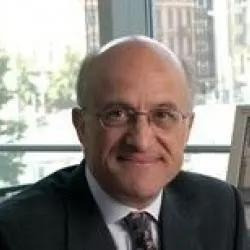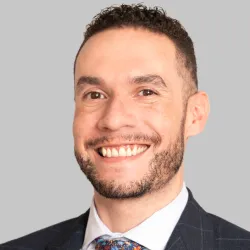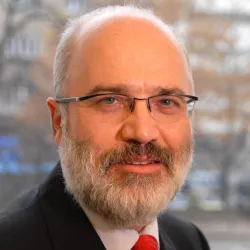Virtual
Updating the about page

Practically focused learning led by experts in central banking
Enhance your central banking knowledge through interactive online training
Virtual course structure

Course pre-reading
Preparing participants with a background to the course topics to ensure they get the most of the training.

Live training
Live content will be a total of nine hours over three days. Attendees will be trained by experts in an interactive format.

Workshop forum
Hosted by the chair, participants will reflect on learnings, share challenges and come up with practical solutions in a group setting.
Why choose Central Banking Training
Trusted environment
Benefit from a safe space to share and learn from peers.
Hear from experts
Training from speakers in specialist central bank areas.
Gain practical solutions
Ask leaders about current challenges and takeaway actionable solutions.
Connect with peers
Meet and share experience with counterparts from across the globe.
Recent speakers and chairs

Francesco Papadia
Former Director general for market operations
European Central Bank

Volodymyr Lepushynskyi
Director, monetary policy and economic analysis department
National Bank of Ukraine
In 2004, joined the National Bank of Ukraine (NBU) on the position of economist responsible for forecasting money market performance. From 2008 to 2019, worked as the Head of Unit, Deputy Head of Division, Head of the Division for Monetary Policy Strategy, Deputy Director of Monetary Policy and Economic Analysis Department. In December 2019, was appointed as a Director of Monetary Policy and Economic Analysis Department. Has contributed to implementing inflation targeting regime in Ukraine, elaborating strategic documents on monetary policy and developing a rules-based monetary policy framework.
Graduated from Kyiv National Economic University with MA degree (with honors) in Finance (2004). Holds a Ph.D. in Economics from Ukrainian Academy of Banking. Has published extensively on monetary, macroeconomic, and modeling issues.

Carlos Cantu
Lecturer and former BIS senior economist at the monetary economics department
Instituto Tecnológico Autónomo de México
Carlos Cantú is currently Lecturer at the Instituto Tecnológico Autónomo de México and was previously the senior economist at the monetary economics department at the BIS. He obtained his MA and PhD in economics from the University of California, Los Angeles. Before obtaining his PhD, he worked for the Bank of Mexico in the Economic Research Department. He is part of the secretariat of the BIS Consultative Group on Innovation and the Digital Economy Technical Task Force on CBDCs.

Marko Škreb
Former governor
Croatian National Bank
Marko Škreb is a former governor of the Croatian National Bank. Currently he is Central banking lead on a Financial sector reform project (FINRA) in Bosnia and Herzegovina, financed by USAID. Before that he was resident project manager for Canada-IMF Capacity building project at the National Bank of Ukraine. He moved to Kyiv from his position as advisor at the International Monetary Fund’s Regional Technical Assistance centre in Accra, Ghana. Before that, he was chief economist and strategist at the second largest commercial bank in Croatia. Mr. Skreb started his professional career teaching at the University of Zagreb. Following academic vocation he joined the Croatian central bank, first as research and statistics director and later on as governor (from 1996 to 2000). In 1997 he was awarded the Central European Annual Awards for Excellence - Best Central Bank Governor by the Banker. Since 2000 he worked as a consultant for the International Monetary Fund and the World Bank in numerous countries, mostly in South-East Europe. He also worked at the Independent Evaluation Office of the IMF in Washington DC in the period 2004-2005. Mr Škreb published a number of articles and edited books, focusing on transition questions and financial issues.

Roberto Motto
Senior Adviser - Directorate General Monetary Policy
European Central Bank
Roberto Motto is Senior Adviser in the Directorate General Monetary Policy of the European Central Bank (ECB). He holds a Ph.D. in Economics from the University of York. He has worked at the ECB since 2000. His expertise is in monetary policy and macroeconomics. He has published in several international journals such as “American Economic Review”, “Journal of Monetary Economics”, “Journal of Money, Credit and Banking”, “Journal of Economic Dynamics and Control”, and has co-authored a book on the history of the ECB monetary policy.
Key training areas
Balance sheets | Big data | CBDC | Climate Change | Cyber risk | Communications | Currency management | Financial reporting | Financial stability | Fintech | FMI | Governance | Human resources | Leadership | Legal risks | Mobile payments | Monetary operations | Payment systems | Prudential regulation | Risk management | Reserve management | Strategic planning | Suptech
Very interactive training that can provide trainees with very useful insights and with a great sharing of different experiences
Bank of Italy
A series of insightful and well-balanced seminars, topped with top-notch experts as the speakers. Truly an eye-opening experience
Bank Indonesia
I would highly recommend taking advantage of the training opportunities offered: presenters were knowledgeable, engaging and the seminars were well organised
Bank of Jamaica
For a knowledge area [strategic planning] that is highly specific, Central Bank Publications provides a space where central bankers can find common ground
Central Bank of Brazil
This course [on communication] was relevant and timely for any central bank seeking to engage with its online audience in meaningful ways
Central Bank of Barbados
As one of the future leaders of the Central Bank, it is inevitable that I prepare myself by acquiring knowledge in global emerging trends/topics such as CBDC. I am proud to say that Central Banking Institute is one of the great places to hone my knowledge and skills
Bank of Ghana